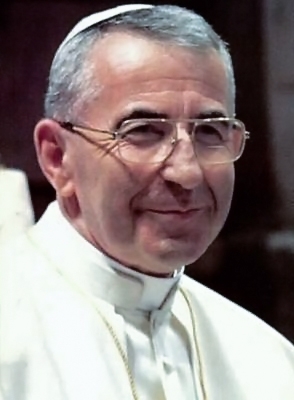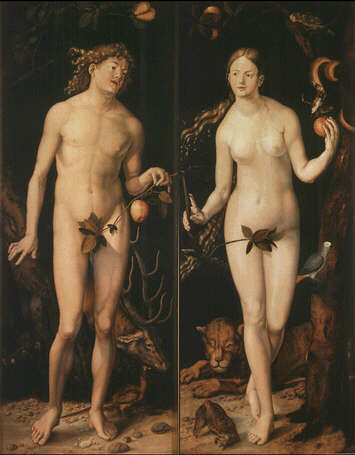 John Paul I, born Albino Luciani, has unfortunately become something of a forgotten figure. He himself, in typically self-effacing fashion, too the combined name of his two predecessors, John XXIII and Paul VI, and his successor–elected after John Paul I’s 34-day reign–Cardinal Karol Wojtyla of Krakow, took Luciani’s name but made it his own.
John Paul I, born Albino Luciani, has unfortunately become something of a forgotten figure. He himself, in typically self-effacing fashion, too the combined name of his two predecessors, John XXIII and Paul VI, and his successor–elected after John Paul I’s 34-day reign–Cardinal Karol Wojtyla of Krakow, took Luciani’s name but made it his own.
The 30th anniversary of Luciani’s own passing slipped by–it was Sept. 28–and tomorrow (Oct. 16) is the 30th anniversary of Wojtyla’s election, which will likely push thoughts of John Paul I further into the background. In the famous “Year of Three Popes” (Paul VI, John Paul I, and then John Paul II), Luciani is often remembered for now-debunked rumors that he was killed. (John Cornwell’s “Thief in the Night” remains the best treatment of that.)
But there are many other wonderful and moving stories of the “Smiling Pope” Luciani. AP teletype.bmp
Before his passing slips by again, I wanted to highlight this entry from CNS’ chief Vatican correspondent, John Thavis, who was just starting his career in Rome in 1978. Thavis recalls how he got word of Luciani’s death, and how rumors of foul play began immediately:
VATICAN CITY — Thirty years ago today I walked into the office of the Rome Daily American at 6:45 in the morning and began ripping the AP and Reuters newswires for a 7 o’clock radio news show. When I saw the teletype machines, I froze. At the top of each were two bulletins announcing the death of Pope John Paul I after only 34 days in office.
A few minutes later I found myself announcing on Radio Daily American that the “smiling pope” had died in his sleep the night before, at the age of 65. The news show was not much more than a headline service, but I promised details to come, and then ducked out of the building for a quick espresso.
When I walked into the corner bar, the first words I heard were: “L’hanno ammazzato.” “They killed him.” I can’t remember whether the phrase was pronounced by Sergio, the barista, or one of his customers, but it seemed to be the general consensus of the Roman street that day. The pope was known as a good and decent man, and the popular imagination was already conjuring up a plot to explain his untimely demise.
And in Rome, the popular imagination tends toward poison. Hadn’t a Russian Orthodox Church leader, Metropolitan Nikodim, dropped dead a couple weeks earlier during a meeting with the pontiff after drinking a cup of coffee? Perhaps the coffee had been meant for the pope. Or so went the thinking in Sergio’s bar.
It is a beautiful slice-of-history, not least for the image of the teletype copy that John included–he found the bulletins by chance in a book of poetry–which brought back memories of my own early days amid clattering news wire printers, a few years after John. It wans’t that long ago. Yet it all seems so distant.

